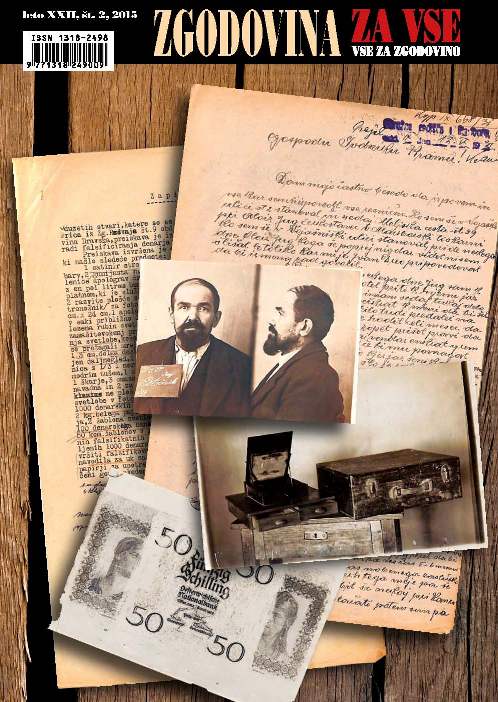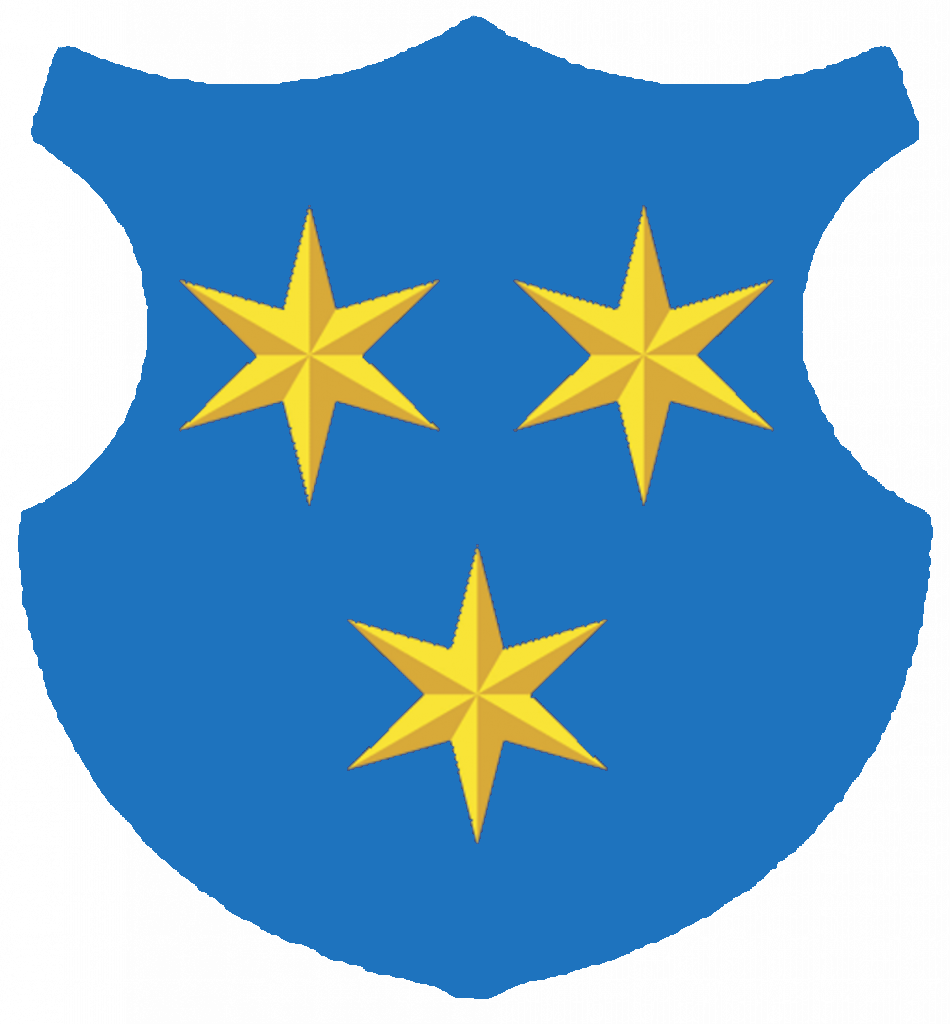|
Authors:
|
Articles: Oh, the Unfortunate Lust for Sex! Money Counterfeiters: Jožef Prelesnik, Jurij Potočnik and Franc Rupnik “We shall never again be friends! And do not reproach me by begging!” |
 |
________________________________________________________________________________
Darja MIHELIČ
Oh, the Unfortunate Lust for Sex!
An inquiry into Ioannes Dominicus de Cleris, a sinful priest from Izola
In 1580, the Veronese bishop Agostino Valier, in his capacity as apostolic visitor for Dalmatia and Istria, visited the Koper diocese and examined the condition of their religious objects, clergy and congregation. He found several clergymen who had breached the principle of sexual abstinence prescribed by the Church councils. Some had permanent or occasional partners; several also had children. Valier’s visitation report also includes a record of extensive hearings of witnesses pertaining to the investigation of an Izola priest, Ioannes Dominicus de Cleris. He had engaged in intercourse with two married women, thus breaching the sanctity of marriage. In addition, the husband of one of the two women caught him “in flagranti” and complained to the Bishop of Koper. The Bishop forwarded the case to the visitor’s court of arbitration. The adulterous priest was sentenced to a ten-year expulsion not only from Izola and the diocese of Koper but from the entire province of Istria.
Stanislav JUŽNIČ
Galileos on Our Territory
About skillful Venetian salt traders and ambitious family members in Carniola
The influence of Galileo Galilei on the Carniolans had a personal touch. One of his older relatives in Carniola included the main Venetian salt trader Francesco Galilei († before 17 June 1647), who cleverly took advantage of large differences in prices between the Venetian and Hapsburg territories. F. Galilei played a key role in arranging Galileo Galilei’s pension with the cathedral in Brescia in the then Venetian territory. For Slovenes, an even more important tenant of the salt trade was Roberto Galilei (1615 Florence – 1681 Ljubljana), who became the quarter captain for the Istrian part of Carniola, a Carniolan countryman and a rich banker. As a captain, he commanded the defence against the planned Ottoman attack on Vienna in 1663 and kept his lucrative position for two decades until his death. Roberto was held in high esteem in Carniola, judging by the godfathers of his children, who included the head of the province himself; Roberto’s wife was godmother to the daughter of Karl Valvasor († 1697), the half-brother of the historian and polymath Janez Vajkard Valvasor. The article investigates Roberto’s ties with affluent entrepreneurs from Ljubljana, in particular tradesmen such as Caharija Waldtreich and Franc Zergoll(ern). The Ljubljana heritage of Roberto Galilei, which was inventoried soon after his death, reveals the splendor of a man who was quite wealthy. Roberto married Baroness Mordax, who gave birth to as many as eight children. With the exception of the oldest son, all were baptized in the Ljubljana cathedral. The Ljubljana Franciscans buried Roberto, his wife and their adult daughter.
Damir GLOBOČNIK
Money Counterfeiters: Jožef Prelesnik, Jurij Potočnik and Franc Rupnik
Jožef Prelesnik (1832-1898) was the best known money counterfeiter who operated on Slovenian territory in the second half of the 19th century. The article presents counterfeiters in the first decades of the 20th century in Styria: Franc Rupnik (b. 1869) and several members of the Potočnik family from Rošnja near Št. Janž in Dravsko polje. In 1891, Jože and Gašper Potočnik, who helped the counterfeiter Jurij Hvalec, were sentenced for counterfeiting money before the Celje jury court. In 1909, the Maribor jury court tried Gašper Potočnik’s sons: Franc Potočnik (b. 1880), a tailor from Rošnja, Gašper Potočnik jr. (b. 1888) and Jurij Potočnik (1884-1927). Jurij was sentenced to a further 20 years of heavy imprisonment in 1926. The former soldier and photographer Franc Rupnik was the main money counterfeiter in this group. He was sentenced in 1927, 1931 and 1937. The operations of the counterfeiters can be reconstructed on the basis of documents from the Regional Archives in Maribor.
Tomaž MESARIČ
“We shall never again be friends! And do not reproach me by begging!”
About a murder, an awkward relationship by marriage and a criminal investigation at the chapel above Železniki in 1910
The narrative is of two friends from the vicinity of Železniki, who later became relatives by marriage. They helped one another with work around the farm and often fought; however, they were also quickly reconciled (at least on the outside). They were well known with the locals but in different ways. Each was politically active in his own way, and they provided the legally agreed right to subsistence to their parents–one of them more readily than the other. They lived in a small town with a politically-ardent clergyman in whose courtyard members of the liberal gymnastic society Sokol often exercised. One of them was sarcastic, the other sensitive, in particular after a glass or two. They had common friends, who helped and occasionally reproached each other if anyone mentioned the old debts. Nothing out of the ordinary; however, one summer Sunday, all that went to hell. The friendship of the two faded over time and burst into open aggression occasionally; one Sunday it so escalated that a criminal investigation was launched against one of the two, resulting in a court sentence. Criminology and forensic science were young and interdisciplinary practices; the latter established itself at the turn of the century. The emerging practice of criminology needed a methodological apparatus, which, however, was mostly uncritically based on the natural sciences. The investigating judge called on the help of court experts, whom he directed in an effort to explain the cases in an objective manner and prove the criminal act. Forensic photography became the ideal of objectivity. “Decontaminated” of additional interpretation, it represented a useful means of inquiry and announced the arrival of the modern investigating judge–Including our case.
